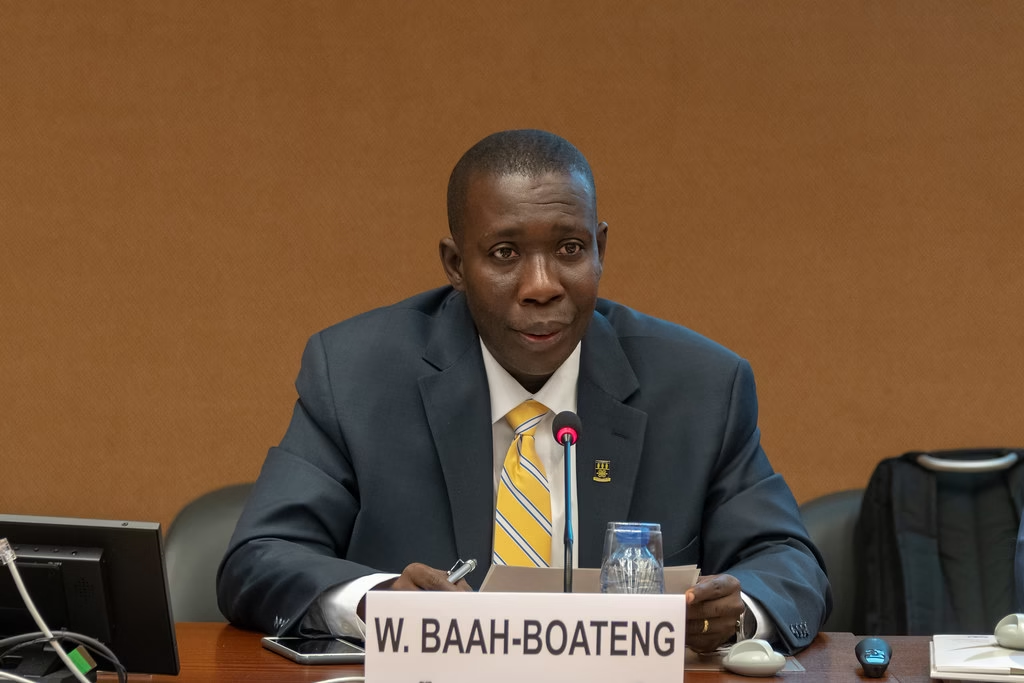Ghana’s Productivity Crisis: 74% of Workforce Lacks Education Beyond JHS, Says Labour Economist
Ghana’s Workforce Skills Gap: A Barrier to Economic Growth
Ghana’s economic progress is being stifled by a poorly skilled workforce, with 74% of workers lacking education beyond Junior High School (JHS), according to labor economist Prof. William Baah-Boateng. This skills gap poses a significant challenge to the country’s ambition to implement a 24-hour economy, a key policy of President John Dramani Mahama’s administration.
Speaking at the launch of the Productivity, Employment, and Growth Report on February 24, 2025, Prof. Baah-Boateng revealed alarming statistics: 20% of Ghana’s labor force has no formal education, while 54% have only JHS-level education.
“This is a structural problem that limits productivity growth,” he emphasized. “We cannot expect to compete globally or transform our economy with a workforce that lacks the necessary skills.”
The Productivity Gap: Ghana vs. Global Standards
Ghana’s labor productivity, though improving, lags far behind that of upper-middle-income countries. Prof. Baah-Boateng highlighted that Ghanaian workers produce an average of 6 per hour, compared to 70 in the United States.
“This gap is too wide if we are serious about achieving economic progress,” he stated.
The report further underscores the education gap in Ghana’s workforce, with only a small portion of the population possessing the higher-level skills needed to drive economic growth.
Sectoral Productivity: Mining Leads, But Jobs Remain Scarce
Labor productivity in Ghana has grown at an average of 3.2% annually from 1991 to 2019. However, this rate is insufficient to drive the economic transformation the country needs.
- Mining Sector: Recorded the highest productivity growth at 21.7%, yet this has not translated into more jobs.
- Household Agriculture and Informal Urban Services: These sectors employ most workers but remain low-productivity areas, contributing little to economic expansion.
Wages and Productivity: A Growing Disparity
Wages in Ghana are not keeping pace with productivity growth, particularly in the informal sector, where most Ghanaians work. This widening gap between earnings and productivity is a pressing concern.
Urgent Call for Investment in Education and Skills Training
Prof. Baah-Boateng called for urgent investment in education and skills training, especially for the youth, where unemployment stands at 29.6%. He also urged the government to focus on high-productivity sectors such as manufacturing, commercial agriculture, and utilities.
“The future of manufacturing will be crucial to Ghana’s economic growth,” he said. “It is a sector with the capacity to create jobs and increase productivity, and it must be given serious attention.”
Solutions for a Brighter Future
To address these challenges, Prof. Baah-Boateng proposed the following:
- Expand Access to Quality Education: Prioritize education reforms to equip workers with the skills needed for a modern economy.
- Invest in High-Productivity Sectors: Focus on manufacturing, commercial agriculture, and utilities to create jobs and boost productivity.
- Bridge the Wage-Productivity Gap: Implement policies to ensure wages reflect productivity growth, particularly in the informal sector.
Call to Action
Ghana’s economic transformation depends on addressing its workforce skills gap. Stay informed about the latest developments in Ghana’s economy by visiting Ghana Statistical Service and World Bank Ghana.



